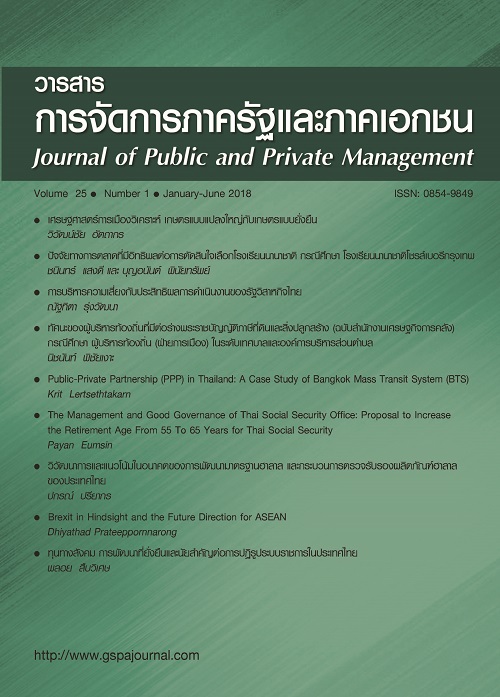Public-Private Partnership (PPP) in Thailand: A Case Study of the Bangkok Mass Transit System (BTS)
Abstract
Since 1990, Public-Private Partnership (PPP) has been an option for the government to develop basic transportation and maintain economic growth in Thailand. The BTS is the first successful mass transit system in Thailand and was originally funded totally by a private party, which is a 100 percent private investment. However, the project has faced many problems and obstacles caused by many factors. This study highlights four significant factors affecting the PPP project: (1) political; (2) economic; (3) managerial; and (4) social. The results of the study indicate that these four factors have a different impact on each phase of the BTS project which can be divided into three phases: Preparation phase, construction phase, and operating phase.
With a recognition that not all four factors are controllable, it is recommended for future solutions to improve PPP cooperation that the central government should have only a supervisory role and should not intervene in the project. This could be achieved through decentralization of power to designated agencies which would be particularly responsible for the project. Additionally, before the project commences, there should be a comprehensive study and a master plan laid out which is clear enough and includes a necessary survey, risk assessment and public hearing. The revision and adjustment of the plan should be done only if demonstrated as necessary.


